Shopping Cart
Remove All Your shopping cart is currently empty
Your shopping cart is currently empty
Anti-CCND1 Antibody (4L128) is a Rabbit antibody targeting CCND1. Anti-CCND1 Antibody (4L128) can be used in ICC/IF,IHC,IP,WB.
| Pack Size | Price | USA Warehouse | Global Warehouse | Quantity |
|---|---|---|---|---|
| 50 μL | $297 | 7-10 days | 7-10 days | |
| 100 μL | $496 | 7-10 days | 7-10 days |
| Description | Anti-CCND1 Antibody (4L128) is a Rabbit antibody targeting CCND1. Anti-CCND1 Antibody (4L128) can be used in ICC/IF,IHC,IP,WB. |
| Ig Type | IgG |
| Clone | 4L128 |
| Reactivity | Human,Mouse,Rat |
| Verified Activity | 1. Western blot analysis of Cyclin D1 on different lysates using anti-Cyclin D1 antibody at 1/1,000 dilution. Positive control: Lane 1: Hela, Lane 2: PC-12, Lane 3: SH-SY-5Y. 2. Immunohistochemical analysis of paraffin-embedded human lung carcinoma tissue using anti-Cyclin D1 antibody. Counter stained with hematoxylin. 3. Immunohistochemical analysis of paraffin-embedded human liver carcinoma tissue using anti-Cyclin D1 antibody. Counter stained with hematoxylin. 4. Immunohistochemical analysis of paraffin-embedded mouse liver tissue using anti-Cyclin D1 antibody. Counter stained with hematoxylin. 5. Immunohistochemical analysis of paraffin-embedded human tonsil tissue using anti-Cyclin D1 antibody. Counter stained with hematoxylin. 6. ICC staining Cyclin D1 in PC-12 cells (green). The nuclear counter stain is DAPI (blue). Cells were fixed in paraformaldehyde, permeabilised with 0.25% Triton X100/PBS. 7. ICC staining Cyclin D1 in N2A cells (green). The nuclear counter stain is DAPI (blue). Cells were fixed in paraformaldehyde, permeabilised with 0.25% Triton X100/PBS. 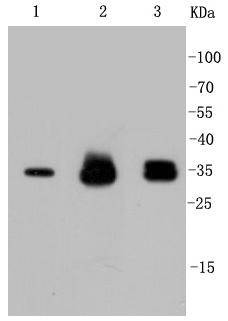 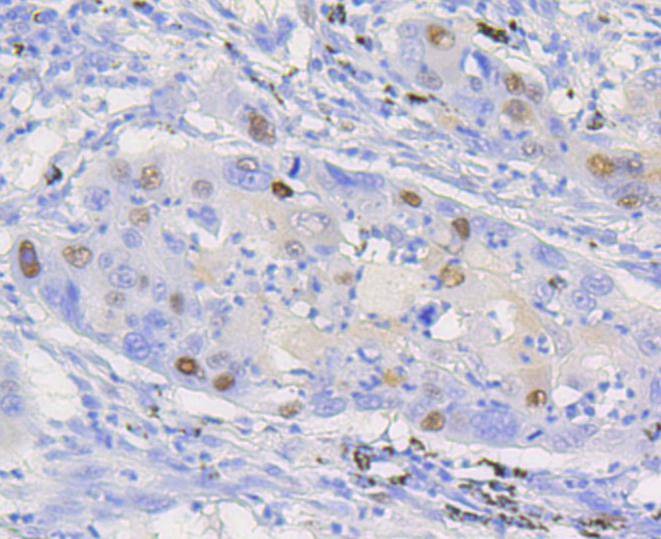 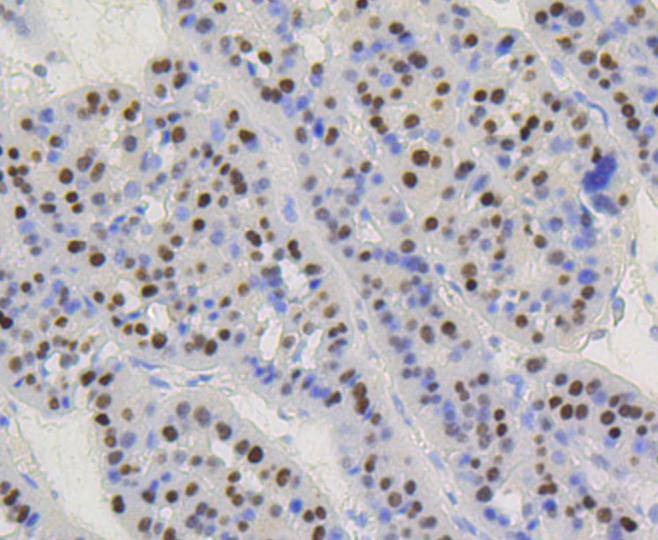 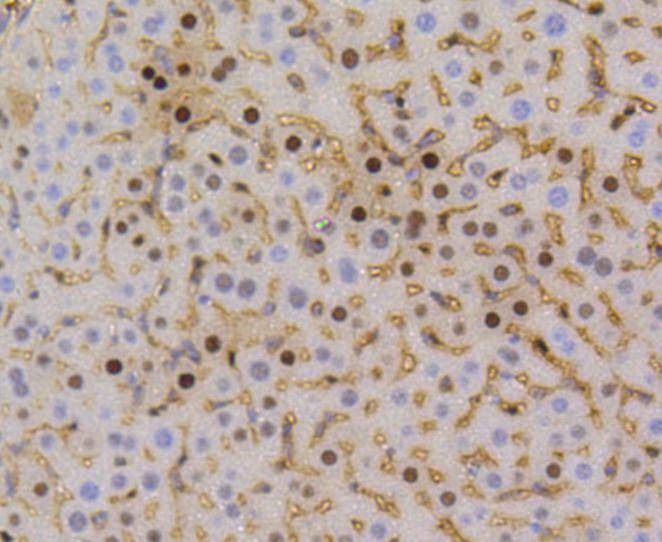 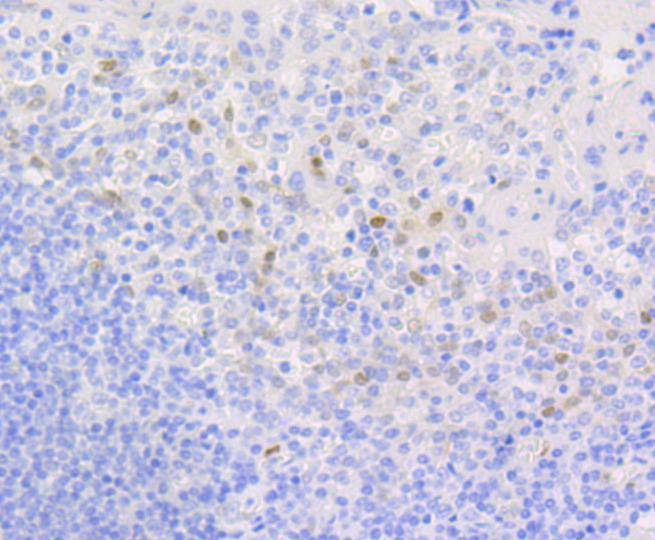 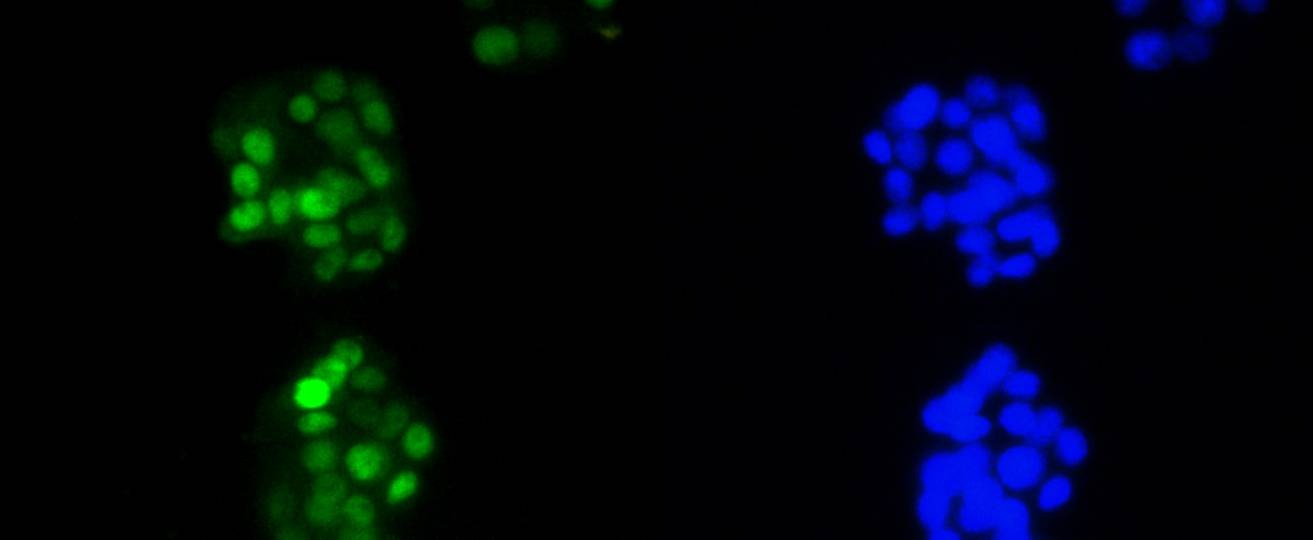 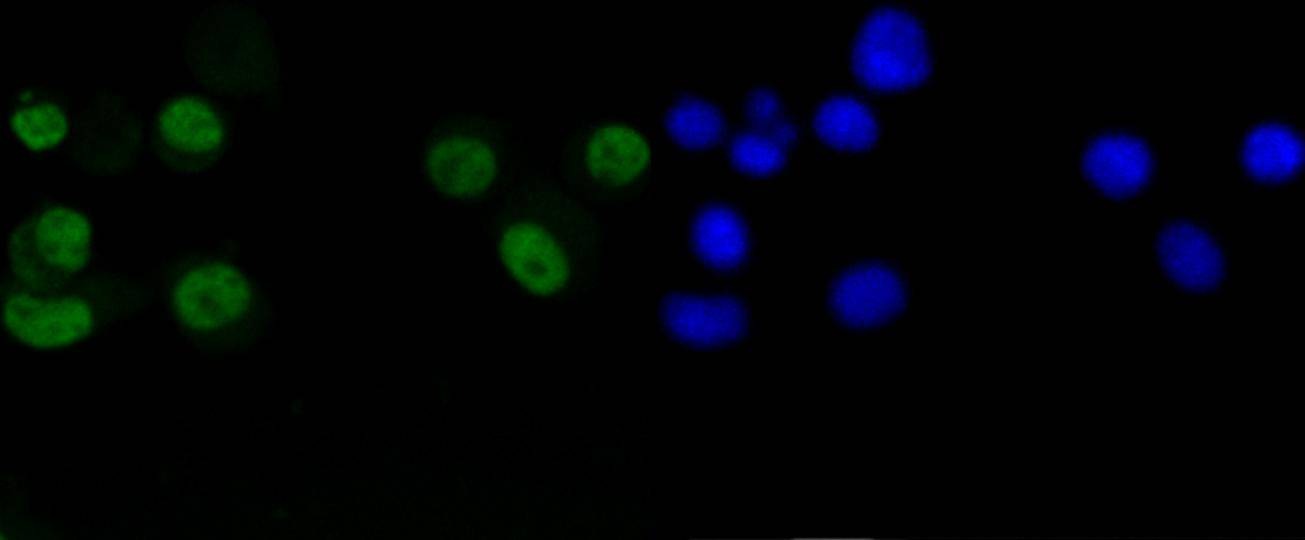 |
| Application | |
| Recommended Dose | WB: 1:1000-5000; IHC: 1:50-200; ICC/IF: 1:50-200 |
| Antibody Type | Monoclonal |
| Host Species | Rabbit |
| Construction | Recombinant Antibody |
| Purification | ProA affinity purified |
| Appearance | Liquid |
| Formulation | 1*TBS (pH7.4), 1%BSA, 40%Glycerol. Preservative: 0.05% Sodium Azide. |
| Research Background | The proliferation of eukaryotic cells is controlled at specific points in the cell cycle, particularly at the G1 to S and the G2 to M transitions. It is well established that the Cdc2 p34-cyclin B protein kinase plays a critical role in the G2 to M transition while cyclin A associates with Cdk2 p33 and functions in S phase. Considerable effort directed towards the identification of G1 cyclins has led to the isolation of cyclin D, cyclin C and cyclin E. Of these, cyclin D corresponds to a putative human oncogene, designated PRAD1, which maps at the site of the Bcl1 rearrangement in certain lymphomas and leukemias. Two additional human type D cyclins, as well as their mouse homologs, have been identified. Evidence has established that members of the cyclin D family function to regulate phosphorylation of the retinoblastoma gene product, thereby activating E2F transcription factors. |
| Conjucates | Unconjugated |
| Immunogen | Recombinant Protein |
| Uniprot ID |
| Molecular Weight | Theoretical: 34 kDa. |
| Stability & Storage | Store at -20°C or -80°C for 12 months. Avoid repeated freeze-thaw cycles. |
| Transport | Shipping with blue ice. |
| Size | Quantity | Unit Price | Amount | Operation |
|---|

Copyright © 2015-2026 TargetMol Chemicals Inc. All Rights Reserved.